You can still come but you need to pay at the door! Students $10
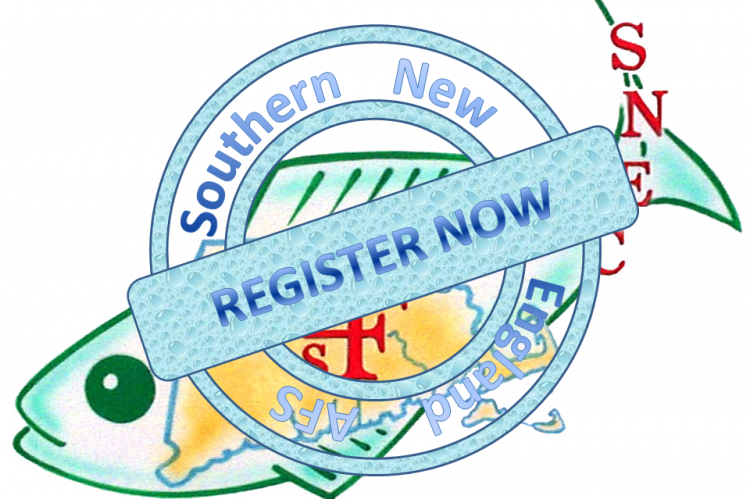

You can still come but you need to pay at the door! Students $10
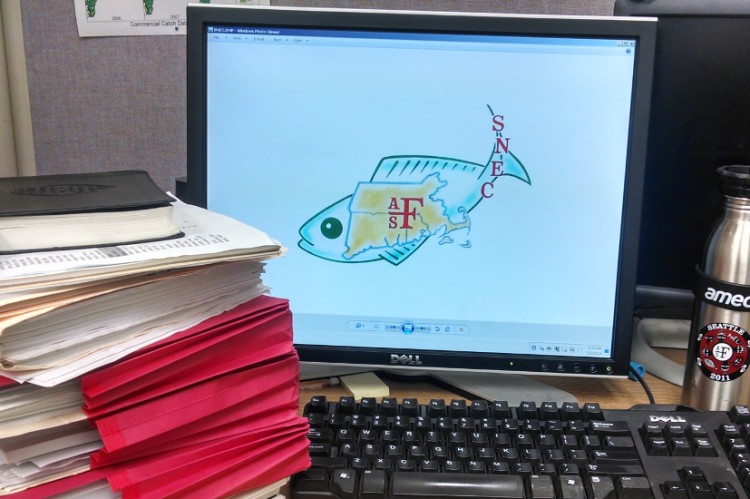
Abstract submission is OPEN for the January 9, 2024 SNEC Winter Meeting.
Abstracts may be submitted via the following link:
SNEC AFS Winter Science Meeting 2024 (google.com) [docs.google.com]
Abstract submission has been extended to 12/1/23
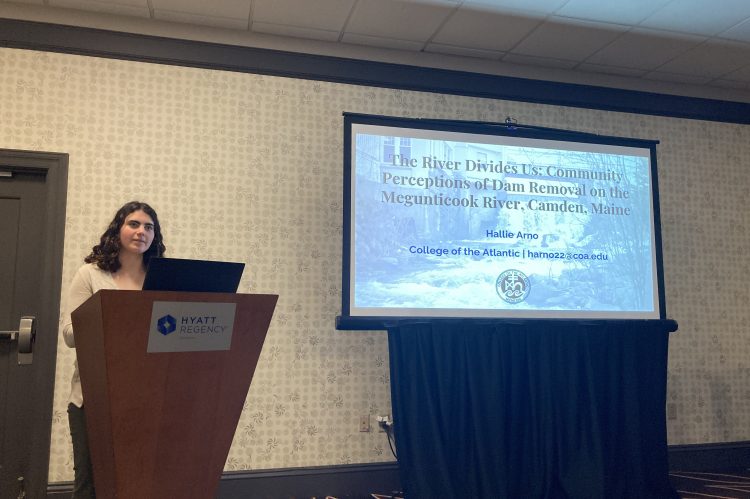
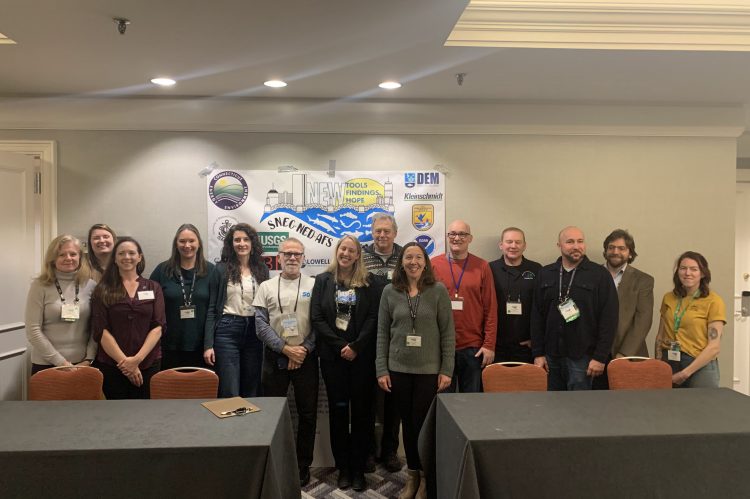
The January 2023 multi day meeting was a success! The meeting website is still live if you want to look back at any abstracts. https://sites.google.com/view/snecnedjointmeeting/at-a-glance
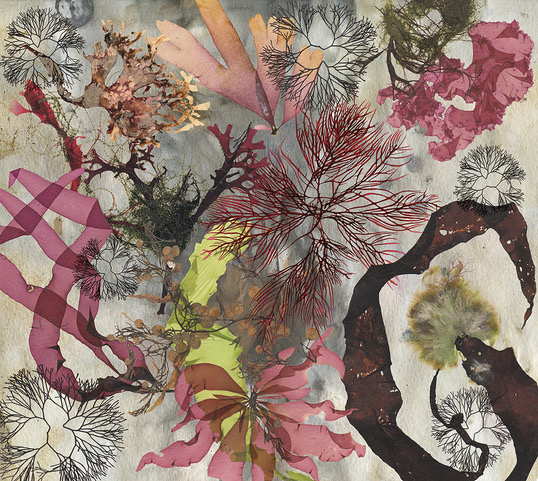
Please join us for the next AFS SNEC/NED DEI Discussion – this FRIDAY, December 16 at 11AM
Topic: How to host an inclusive conference
Discussion Facilitator: Patrick Shirey, AFS NED Past-President and Assistant Professor at University of Pittsburgh, Department of Geology and Environmental Science
Reading
Ten simple rules to host an inclusive conference
https://journals.plos.org/ploscompbiol/article?id=10.1371/journal.pcbi.1010164
Discussion Questions
What was your biggest take-away from the readings?
How are our AFS annual meetings doing at accomplishing the ten simple rules?
Are there ideas in here that AFS could take action on?
Reading for if you have time:
Inclusive Scientific Meetings – Where to Start
This document arose from an Aspen Global Change Institute workshop about diverse, inclusive, and equitable scientific meetings, led by 500 Women Scientists and the Earth Science Women’s Network. The workshop was funded by the Heising-Simons Foundation, and held at the National Center for Atmospheric Research, which is sponsored by the National Science Foundation. Maryam Zaringhalam formatted the document.
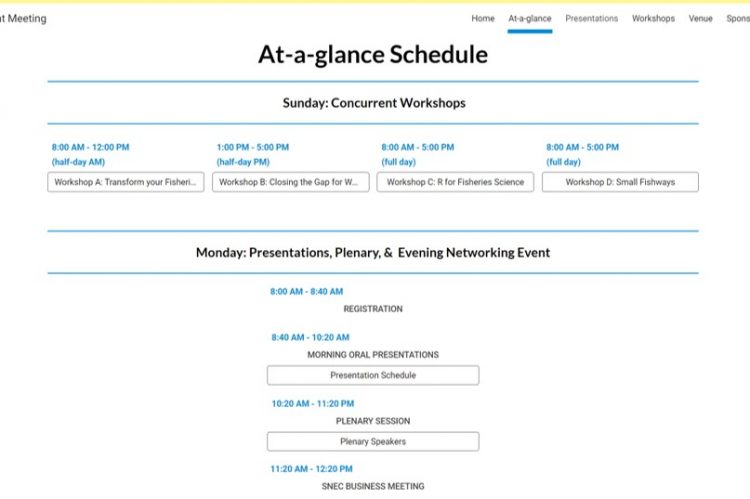
Check out the meeting schedule and list of presentations and abstracts at https://sites.google.com/view/snecnedjointmeeting/at-a-glance

The last discussion group meeting of 2022 will be on a FRIDAY in December. On Friday December 16th Patrick Shirey will facilitate the discussion. The topic and readings and discussion will be announced soon.
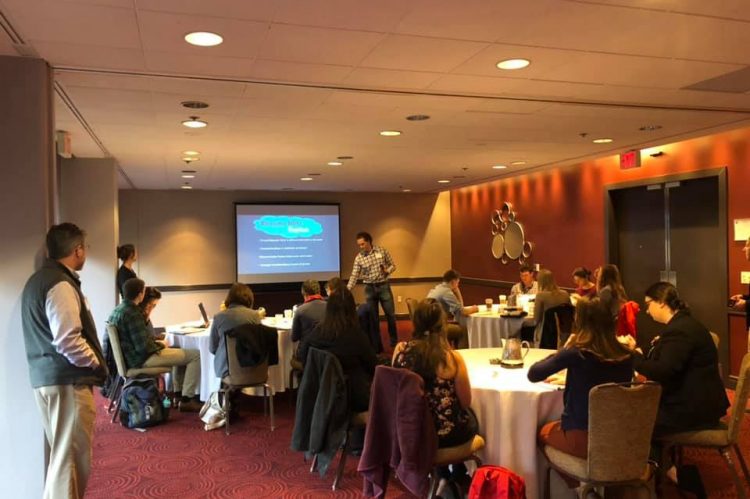
To register, go to the Registration Page.
Workshop B: Closing the Gap for Women and Underrepresented Groups Within Fisheries
Date and Time: 1:00 pm – 5:00 pm, Sunday, January 8, 2023
Half Day – Afternoon
Description: Please join us for a career development workshop focused on providing skills and tools to foster success for women and underrepresented groups within fisheries. This workshop will provide a safe space for participants and panelists to share experiences throughout different stages in their professional career. The first half of the workshop will include advice on pursuing employment opportunities, resume review, and interview advice. The second half of the workshop will focus on advice for career advancement, handling negative situations, developing a strong network, and job retention. The format will be a series of focused Q&A sessions to cover these topics, with a panel of professionals representing different career stages and employment types to share their experiences and advice.
Instructors: Aubrey Ellertson Church, Stacy Furgal, and Sara Turner (Commercial Fisheries Research Foundation, NY Sea Grant, NOAA NMFS Greater Atlantic Regional Fisheries Office)
Questions about this workshop? Contact Aubrey Ellertson Church at [email protected]
Workshop C: R for Fisheries Science
Date and Time: 8:00 am – 5:00 pm, Sunday, January 8, 2023
Full Day
Description: This workshop will help to address a gap in computational resources for biologists. Computational skills are in high demand and enhance research across all disciplines at all career stages. This hands-on, live-coding workshop is specifically designed for individuals who have little or no coding experience, with dedicated time for troubleshooting any installation and/or set up challenges. Learners will be exposed to a broad range of R-based tools that can be applied to their own research, and best practices of scientific computing for facilitating reproducibility will be discussed. The first half of this workshop is a comprehensive introduction to best practices of flat file (spreadsheet) design, data formatting, and foundational programming with R/RStudio, while the second half covers practical applications of R, including importing and cleaning data, customizing summary tables, generating effective visualizations, and automated reporting.
Instructors: Danielle Quinn
Questions about this workshop? Contact Danielle Quinn at [email protected]
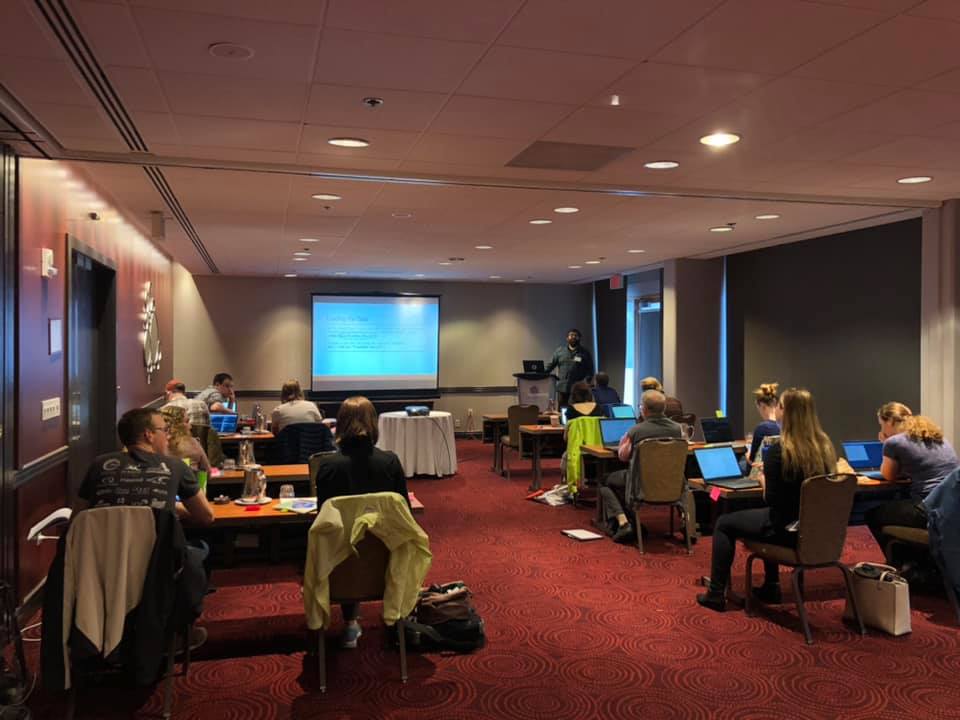
Workshop D: Small Fishways
Date and Time: 8:00 am – 5:00 pm, Sunday, January 8, 2023
Full Day
Description: Goals for the workshop are to provide an overview and history of design and evaluation of small (less than 5 meters in height) fishways in eastern North America, and current techniques for biological and hydraulic evaluation of various fishway designs, including Denil, Alaska Steeppass, pool and weir, and nature-like fishways. Background presentations will be given by biologists and engineers currently working in the field of fish passage technology and application. The workshop will also feature brief case studies of fishway successes and failures from workshop attendees, compilation of fishway performance data, and a Round Table discussion of small fishway performance and application. The target participants are federal, state and local agencies, as well as NGO and watershed organization staff interested in development and evaluation of small fishways, nature-like fishways, and dam removals.
Instructors: Alex Haro (USGS Conte Lab) and Ben Gahagan (Massachusetts Division of Marine Fisheries)
Questions about this workshop? Contact Alex Haro at [email protected]
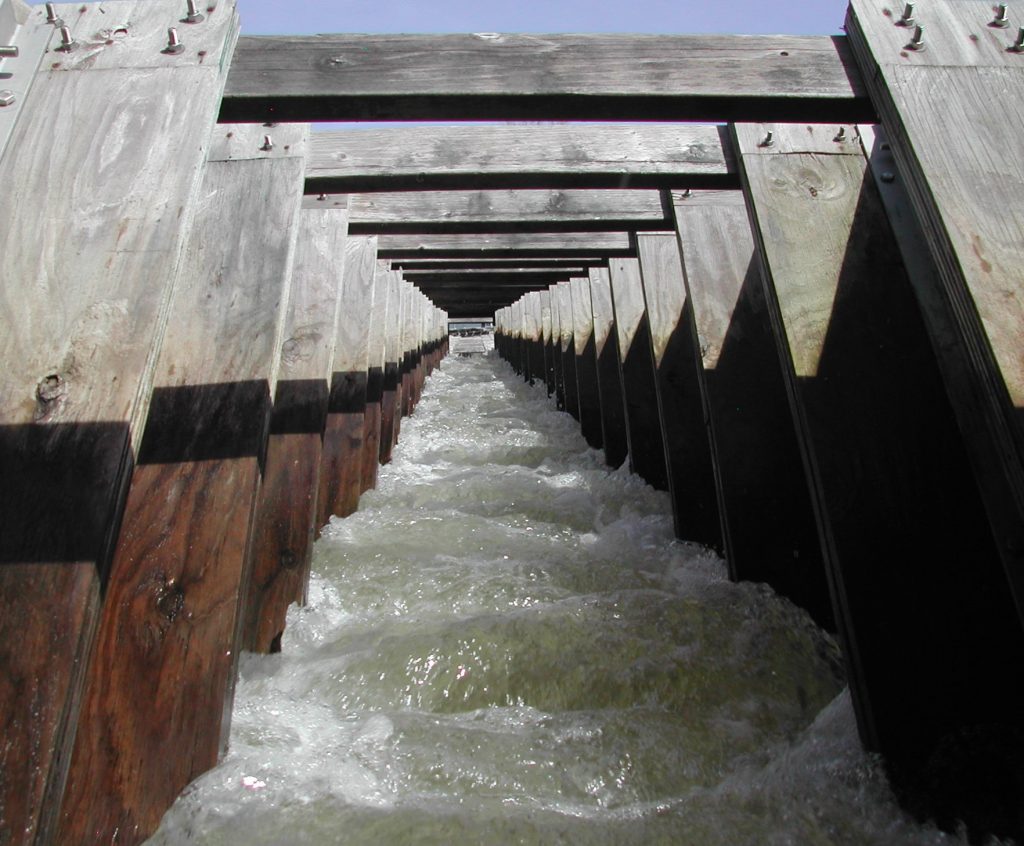
For more information or questions, please contact the workshop instructor(s), or the Meeting Workshop Chairs:
Alex Haro: [email protected]
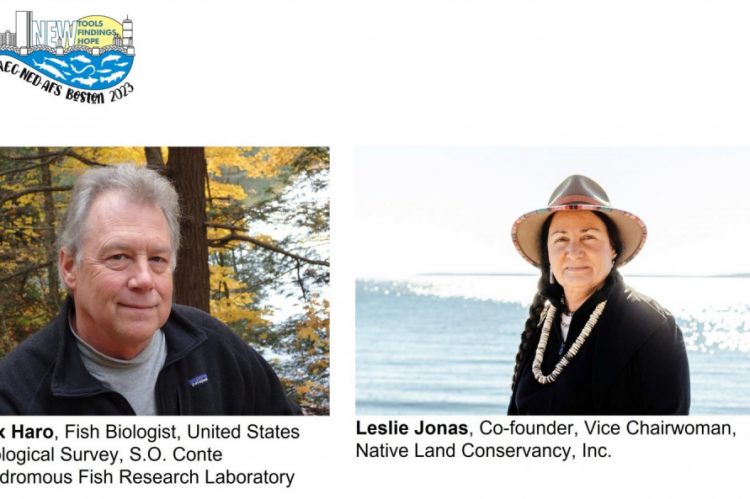

Please join us for the next AFS/NED SNEC DEI Discussion – Thursday, August 11 at 2PM
For the Zoom link please check your emails from the SNEC listserv, or email [email protected]
Topic: Bystander Training in Fisheries Science: Promoting Respect and Equality in the Workplace
Discussion Facilitator: Aubrey Ellertson, SNEC President, and Research Biologist, Commercial Fisheries Research Foundation
Please watch and read the resources below:
https://journals.plos.org/plosone/article?id=10.1371/journal.pone.0102172
Abstract
Little is known about the climate of the scientific fieldwork setting as it relates to gendered experiences, sexual harassment, and sexual assault. We conducted an internet-based survey of field scientists (N = 666) to characterize these experiences. Codes of conduct and sexual harassment policies were not regularly encountered by respondents, while harassment and assault were commonly experienced by respondents during trainee career stages. Women trainees were the primary targets; their perpetrators were predominantly senior to them professionally within the research team. Male trainees were more often targeted by their peers at the research site. Few respondents were aware of mechanisms to report incidents; most who did report were unsatisfied with the outcome. These findings suggest that policies emphasizing safety, inclusivity, and collegiality have the potential to improve field experiences of a diversity of researchers, especially during early career stages. These include better awareness of mechanisms for direct and oblique reporting of harassment and assault and, the implementation of productive response mechanisms when such behaviors are reported. Principal investigators are particularly well positioned to influence workplace culture at their field sites.
Additional Resources:
https://fieldworkfuture.ucsc.edu/resources.html#content1-19
Discussion Questions:
-If you’re comfortable sharing with the group, what is one thing you learned from these resources?
-What are some examples of bystander or conflict resolution trainings you have been a part of either through employment or other work?
-What can we learn from the above and apply to our own professional spaces to give individuals access to a fisheries profession-relevant bystander training that applies more closely to their work or field work?
-Are there scenarios that you think are important to be discussed and included in a training?
-What are ways that SNEC/AFS help develop a bystander training that will be applicable and relevant in today’s society?
